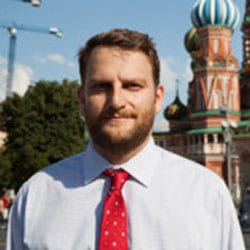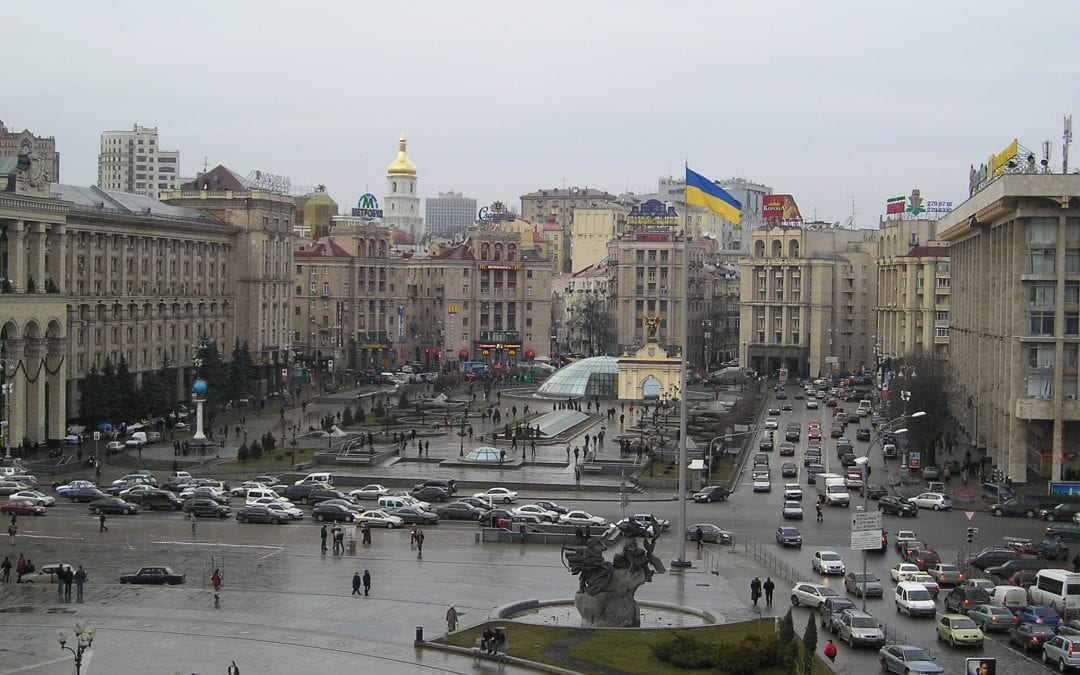Dr. Yuval Weber, the Kennan Institute Associate Professor of Russian and Eurasian Studies at the Daniel Morgan Graduate School of National Security (DMGS), recently wrote a chapter titled “The Juiciest Fruit Left on the Vine: Ukraine as a Bargaining Failure” which was chosen by its editors, Tomasz Stępniewski and George Soroka, as the lead article for Ibidem Verlag’s edited volume Ukraine After Maidan: Revisiting Domestic and Regional Security.
Dr. Weber writes in the work’s abstract,
Russia’s dissatisfaction with the current international order and the origins of its current policy towards Ukraine both stem from the ill-fated post-Cold War settlement. Mikhail Gorbachev and George H.W. Bush negotiated a peaceful denouement to the Cold War in 1989 at the Malta Summit. The USSR’s collapse only two years later forced policymakers to concentrate on urgent domestic concerns, removing Russia from its traditional place at the heart of international politics. This mismatch between Russia’s prestige as a great power and the meager benefits it enjoyed as a post-Soviet state generated dissatisfaction with the Euro- Atlantic alliance.
I begin by evaluating the strategies Russian leaders used to raise their political standing, including accommodating the U.S.-led order, balancing with other European powers in the run-up to the Iraq War, and finally challenging that order through Eurasian integration. I argue that the final strategy sought to reduce the value of the Euro- Atlantic alliance by promoting multipolarity (BRICS), creating a Russia- led “Eurasia” bloc through tighter regional binding to compete with other blocs, and using energy windfalls to increase consumption and fund military modernization. I show that Ukraine was a linchpin of the strategy because of its industrial importance to the Russian economy and its potential as a bridge to Europe. The events of Euromaidan not only removed a friendly Ukrainian leader, but the “loss” of Ukraine meant that Russia’s Eurasian integration strategy as a mechanism to revise the international order had reached its zenith. Facing a negative shift in bargaining power, Vladimir Putin selected the rational strategy: challenge Ukraine before European integration rendered any such challenge non- credible. I conclude by updating the Correlates of War Composite Index of National Capability (CINC) to evaluate in hard power terms whether Russia is able to sustain its challenge to the international order.
Through his service at DMGS, Dr. Weber provides students with insight as a leading international relations scholar. His insight into these topics contributes to helping our students learn to think critically about the key issues shaping today’s world.
Click below to learn more about Dr. Yuval Weber and to see how our programs can jump-start your career.
Biography

Yuval Weber, Ph.D., is the Kennan Institute Associate Professor of Russian and Eurasian Studies at the Daniel Morgan Graduate School of National Security (DMGS). Prior to joining the faculty at DMGS, Dr. Weber taught at Harvard University, where he was a Visiting Assistant Professor in the Department on Government and a Kathryn W. and Shelby Cullom Davis Research Fellow at the Davis Center for Russian and Eurasian Studies, and at the Higher School of Economics in Moscow, Russia. His work has appeared in Problems of Post-Communism, International Studies Review, Survival, Cold War Studies, Orbis, and the Washington Post.

